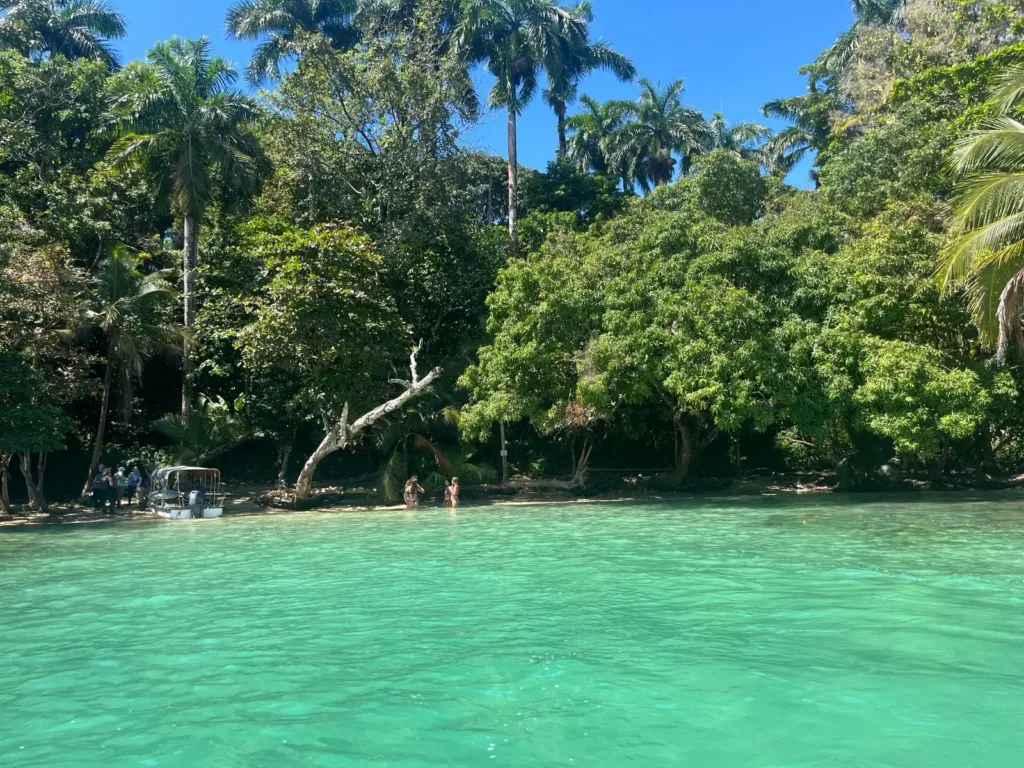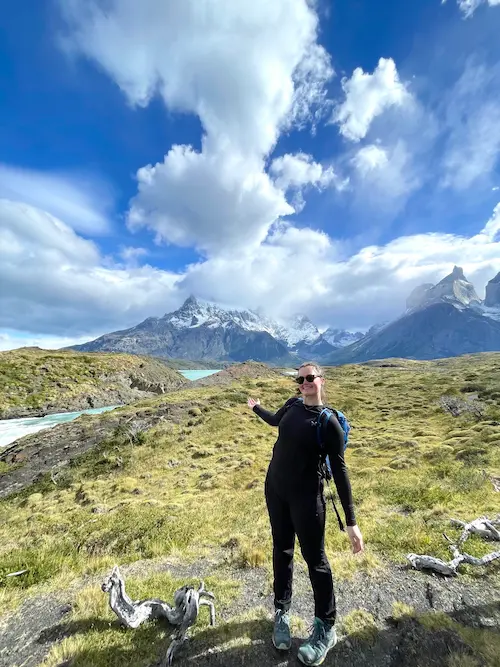Understanding Paradise
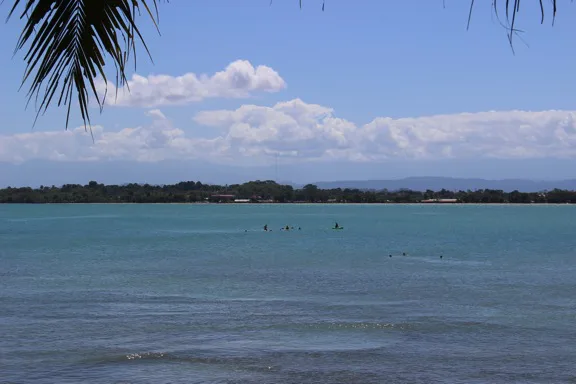
SFS students enjoy the sea and sun while kayaking, paddle boarding, and swimming in front of the SFS Center for Tropical Island Biodiversity Studies (TIBS). All Photos: Cinda Scott
The best part about my job is being witness to our students’ process of self-discovery. It is impossible for students to leave SFS the same way in which they entered. For the first time in its history, our Center welcomed 24 students. This group is by far the most adventurous and curious group that we have had yet. They want to get out there and experience just about everything. This group, in the short amount of time they have been with us, has shown a profound and deep sense of caring for the people and the environment of Bocas, as well as a wonderful curiosity for nature, a joy of learning, and a strong desire to excel academically. These qualities are what I most adore about the Spring 2016 cohort.
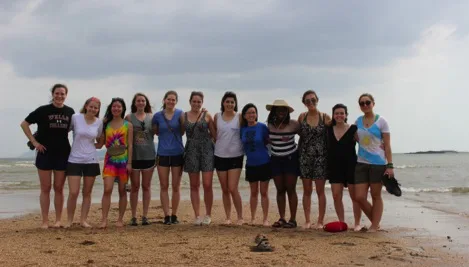
SFS students smile for the camera after dipping their toes in the Pacific Ocean near Panama City, a day before traveling to Bocas del Toro on the Atlantic coast of Panama.
Bocas del Toro is touted as a paradise and is sold to many as the ideal place to retire, build a second home, or vacation. When our students first arrive, the beauty of Bocas overwhelms them. They hear howler monkeys in the distance, they see thriving populations of sea stars while out snorkeling, and they see a town bustling with touristic activities like zip-lining and scuba diving. A true paradise! However, after only one week in Bocas, our students become keenly aware of the many problems that Bocas faces including issues with waste management and inadequate access to healthcare and education. It is at this moment when students begin to see themselves in an entirely different context and when they truly begin to question their role in how and why some people and places in the world have so much, and other places have so little.
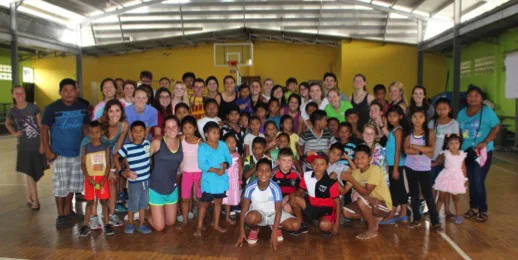
Group photo of SFS students, staff, and community organizers after playing with Bocas kids at the Bocas Town gymnasium
In many ways, Bocas, with its the gorgeous backdrop of natural beauty and with its glaring social and environmental problems, is an intriguing, yet confusing place to be. Bocas has much to offer in terms of both natural beauty and recreation, but underneath, there are serious problems that impede its ability to flourish as a true “paradise.” A theme our students have been discussing formally, in both the Culture & Language and Environmental Policy and Socioeconomics courses, and informally at the dinner table, is whether or not some people in Bocas who visually appear not to have many material possessions are “poor” in comparison to U.S. standards of living.
Is someone poor if they own their own home, live with their family, own their own land, and produce their own food? One of the most difficult obstacles for many of our students to overcome in the first few weeks is letting go of the notion that what they know to be “true” with regards to wealth, somehow carries more value than what a person who is seemingly living in poverty would believe to be true. We do our best to show students that people use different livelihood strategies, not only because they are inextricably linked to their surrounding environment, but also because the value systems that people uphold and depend on are built upon entirely different notions of wealth.
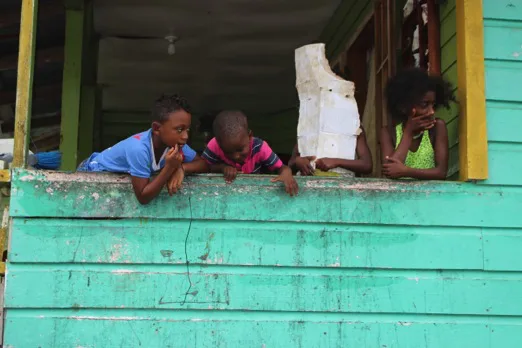
Children on Bastimentos Island observe SFS students taking a tour of the Island
In a recent discussion of the documentary, “Black in Latin America: Brazil, a racial paradise?” students were asked to question and comment on the way Panama markets itself as a racial democracy, much the same way as Brazil. The conclusion in the film, as is the conclusion in the literature regarding Panama’s claim that it is a racial democracy, is a resounding no. Students can take one look around the islands of the archipelago and see for themselves that in paradise, inequalities abound. One of the most powerful ways for people to understand inequality and why it exists is to actually go out and see it, experience it, and understand firsthand, what it means not to have, but more importantly why people do not have. There is great power in our students’ ability to travel to the many islands of Bocas and witness the very complicated issue of poverty and to try and determine from where it stems. As students are discovering, the answer is not easy. When the façade is removed that Bocas is a happy melting pot of many different cultures, one can very quickly find the underlying roots of economic disparities that impede growth and limit access to education and healthcare.
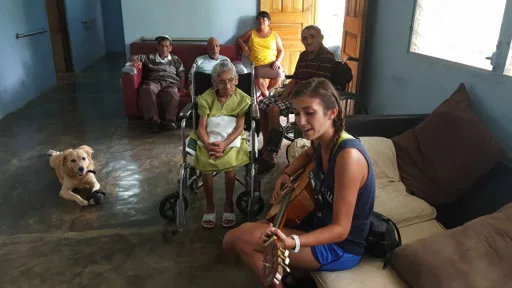
Student Olivia Williamson singing to residents of the Bocas del Toro nursing home.
As we begin week four, students are now more aware that they are not just SFS students, they are part of a much larger community and are therefore, part of this very large and complex problem. They must shift their cultural understandings and what they know to be “true” in order to study, investigate and understand the very fragile Bocas ecosystem, which, as tourism continues to grow in this bio-diverse and ecologically rich region, is under serious threat.
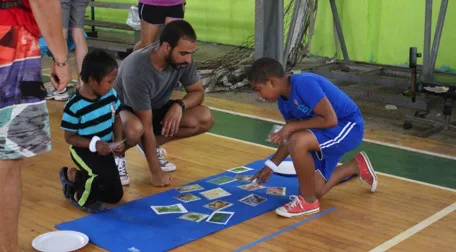
Student Mustafa Ajlyakin explains to children what kinds of foods marine organisms eat during community day at the Bocas del Toro gymnasium.
The goal of our program is to equip students with practical, hands-on knowledge of how people and values, along with the environment and resources leads to the creation of policy and management. Bocas, with all of its environmental beauty and chaos, serves as a living laboratory for marine, terrestrial, and socioeconomic studies. I am very proud of the progress our students have made thus far in shifting their cultural lens, and I cannot wait to see the projects they develop and the contributions they will make toward understanding paradise. Indeed, there is absolutely no way the students who arrived a few short weeks ago will return home unaffected by their experience here in Bocas.
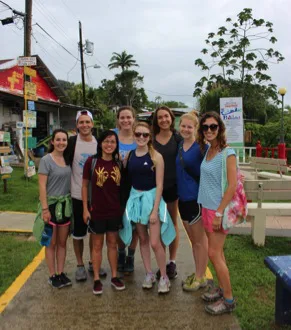
Students take a photo break after walking through Old Bank, Isla Bastimentos.
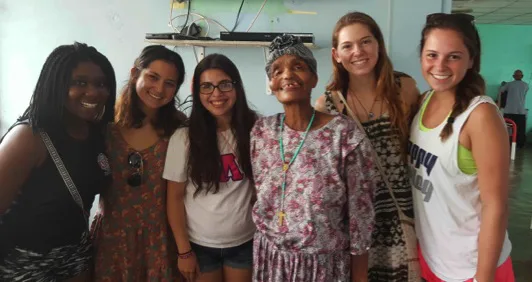
Students at the Bocas del Toro nursing home with resident, Albertina.
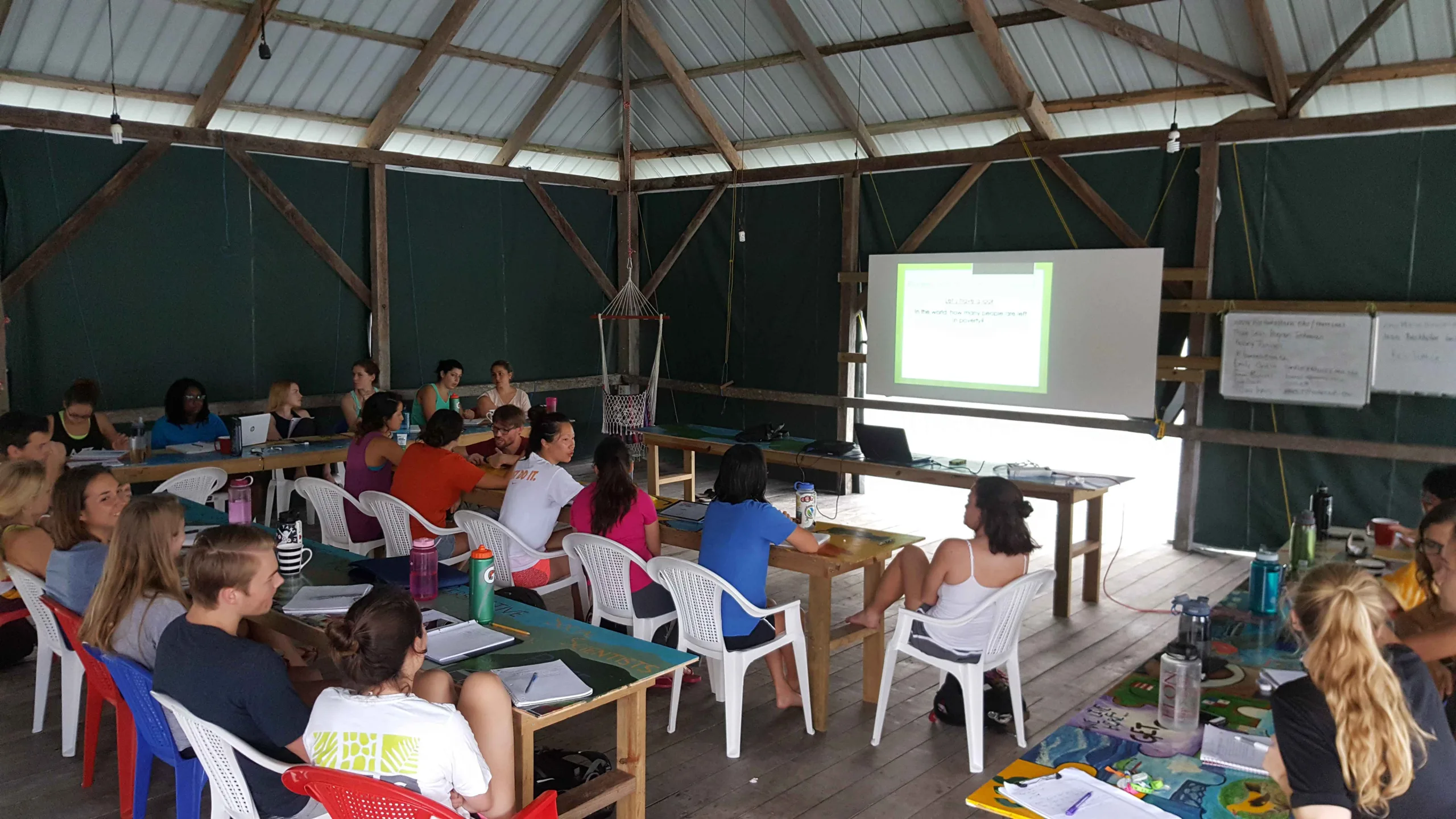
Students in class at the Center.
→ Tropical Island Biodiversity Studies Semester Program in Panama
Related Posts

